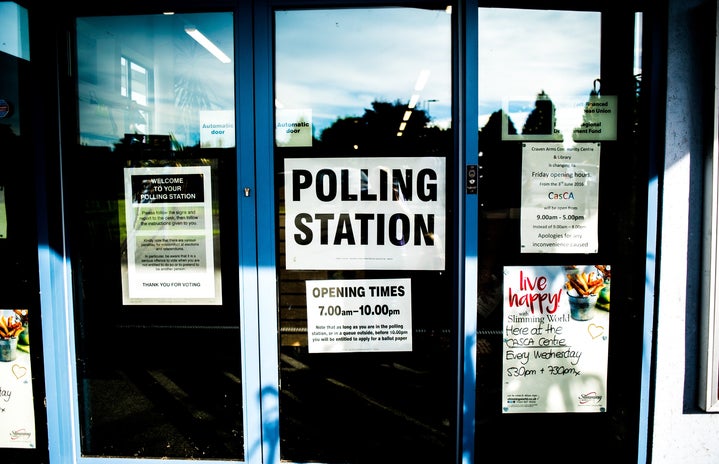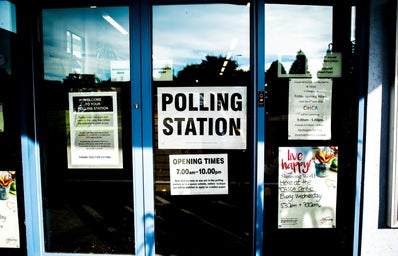On Wednesday, the 29th of May, we will all be heading to the polls to vote in our seventh general election since democracy. This election is not just exciting for first-time voters such as myself, but is set to be a particularly historic and eventful election for the whole country – it marks exactly thirty years since democracy, as well as the first elections where the African National Congress (ANC) might lose their majority. As such, it is crucial that we all, as South Africans, cast an informed vote on election day and help to elect leaders who will safeguard our country and our futures.
Voter registration
The first thing to bear in mind when preparing for the upcoming elections is the various practicalities involved. The most important practical piece of information has already been mentioned: voting day is Wednesday, 29 May. Clear your calendar (this is a public holiday anyway!) and make sure you can get to your voting station on election day.
Another crucial thing to remember is that you must vote at your registered voting station – you can confirm where this is on the IEC website under “check voter registration status”, where you can enter your ID number and then view your registration status, voting station, and ward details. If you absolutely must be out of town on election day, you can vote somewhere other than your registered voting station if you inform the IEC before their 17 May deadline, which you can do by filling out an online form on their website. For anyone who is physically unable to vote at their voting station due to a disability, you can apply for a special ballot between 15 April and 3 May, which will enable you to vote at home a day or two before the elections.
The last practical information to be aware of for the elections is simple: what to bring! Make sure you have a South African ID on you, whether that is an ID book, an ID card, or a temporary ID certificate if you’ve lost your real one – you won’t be able to cast your vote without one. Other than that, bring yourself, your friends, and your family – the most important responsibility you have as a citizen is to show up on the day and to bring others with you.
changes to South Africa’s voting process
One interesting element of these particular elections is that there are a few entirely new features, mainly thanks to the Electoral Amendment Bill signed into law last year. Probably the biggest change, which has been the subject of some debate and legal challenge, is the introduction of independent candidates for the first time in South African history. This means that South Africans will now be able to vote for an individual person instead of a party, which I’m sure will be exciting news to anyone sick of party politics.
The second major change is the introduction of a third ballot to the voting process. Previously, each voter was given two ballots – one was to vote for a party to represent you in the national legislature, and the other to vote for a party to represent you in the provincial legislature. This year, for the first time, each voter will receive three ballot papers – a provincial ballot and, unlike previously, two separate ballots for the national election – a national and regional ballot, both for the National Assembly.
The provincial ballot allows you to vote for a party or person to represent you in the provincial legislature and constitutes its own provincial election. The national election ballots are slightly more complicated.
The first thing to know is that there are four hundred seats in the National Assembly (the body to which parties and people are elected in the national elections). Two hundred of these seats are reserved for parties to contest, and your national ballot allows you to vote for a party to represent you in the National Assembly. The remaining two hundred seats are for both parties and individuals to contest, and your regional ballot allows you to vote for a party or an independent candidate in your region to represent you in the National Assembly. While these developments are interesting and quite exciting, they can also be pretty confusing, so if you would like more information about this the IEC 2024 elections factsheet, or this BusinessTech article, can serve as a good starting point and can give you a different explanation of these changes.
How to be an informed voter
Practicalities aside, the single most important part of voting is being informed – as citizens, it is our responsibility to elect parties and candidates who we believe will have a positive impact on our country, and whose goals and values align with what we want for our own futures and the future of South Africa. The only way to do this is to know what different parties value, what their goals are, and how they intend to go about accomplishing these goals. As young people, we have an even greater responsibility to invest in and protect our own futures, and we will be living with the consequences of the choices we make in May for many years to come. For many South Africans, myself included, whose parents were unable to vote at my age, it is even more important that we exercise this hard-won right.
However, as important as being informed is, it is also true that all of us are busy, and university is, for most, somewhat of a constant struggle. As such, most of us have neither the time nor the energy to read multiple manifestos – bearing in mind that, for example, the ANC manifesto alone weighs in at 58 pages. If this is true for you, do not panic: there is a wealth of (free!) material put together by journalists and other experts for precisely this purpose, and these election information dashboards and manifesto summaries are a great place to start learning.
One fantastic, free online resource is the Daily Maverick election hub, which contains everything from voting tips to incredibly useful manifesto summaries. The manifesto summaries, in particular, are super helpful: they cover a wide range of parties, are short and readable, and are grouped by theme. They even include a brief pros and cons list (specifically: “What’s good?” and “reality check”). If you enjoy this tool, another great resource is Daily Maverick’s “Elections 24” newsletter – it is also free and delivers short, absorbable information surrounding the elections to your inbox until the election results are out.
A similar tool, also very well put together, free, and highly informative, is the News24 Manifesto Meter. This tool allows you to compare different manifestos by theme and is both easy to use and very visual. It enables you to pick one of several specific issues, such as load shedding, from a dropdown menu and then gives you a concise, colour-coded summary of what each party has to say about that issue. This is a fantastic tool to just play around with and is particularly useful in allowing you to hone in on issues that are important to you. Another useful element of this election dashboard is that it has collected links to most of the major parties’ manifestos under “in-depth”, so if you are interested in reading all of those, you can find them here.
If you would like to dive a little deeper but aren’t fully intent on reading every manifesto yourself, another good resource is My Vote Counts, a non-profit centred around protecting South Africa’s democracy. They have published several interesting, in-depth research reports on everything from party funding to intra-party democracy, so if you are keen on acquainting yourself with the nitty-gritty of South African politics, this is a good place to start.
Lastly, and most importantly: keep up with the news and election information in whatever way works for you! I have found the listed resources to be great introductions to understanding our many different parties and a good place to start if you are trying to decide who to vote for. Personally, for more general information, I try to read the news most days, but if you are more likely to stick with watching the news on TV or listening to it on a podcast, do that! And do yourself a favour: talk to people – maybe politics isn’t a good dinner-table conversation, but talk to friends, look out for events and lecture series hosted by UCT that pertain to the elections, and stay informed in whatever way is easiest and most enjoyable for you.
Above all, don’t panic: elections, and particularly your first election, can be enormously overwhelming, but they are also an extremely exciting opportunity to be an active citizen and to really influence your country, your life, and the lives of your fellow South Africans. All that is required of you is to inform yourself in whatever way you see fit and to show up on election day to cast your vote.


